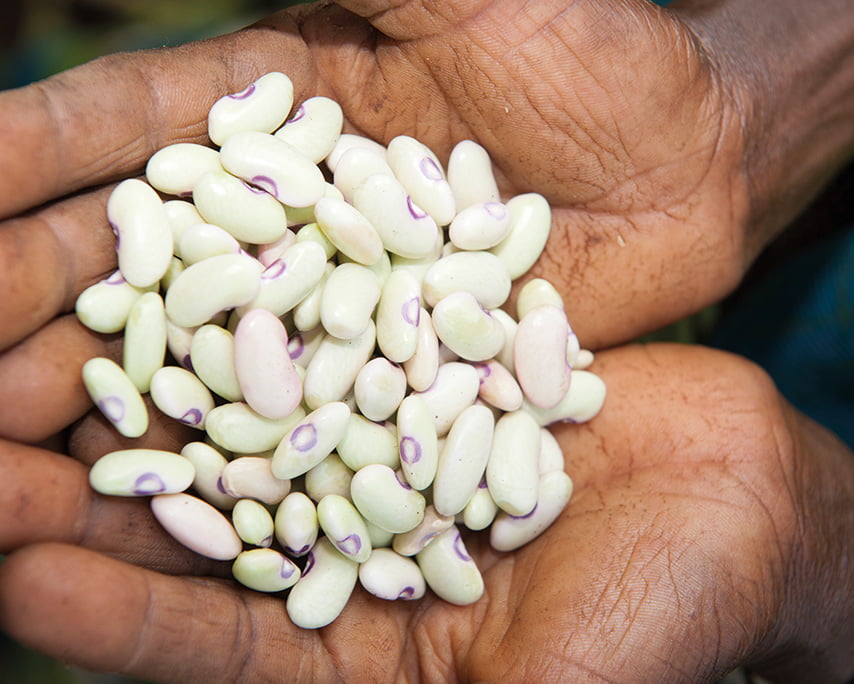A woman from Uganda holding her bean harvest in her hands
Photo credit: Wayne Hutchinson/Farm Images/Universal Images Group via Getty Images
World Pulses Day
In celebration of World Pulses Day, a global initiative led by the Food and Agriculture Organisation (FAO), this year’s theme, “Pulses: Nourishing Soils and People,” highlights the indispensable role of pulses in fostering a sustainable agri-food system amid changing climates and environments.
The very foundation of human sustenance lies in the soil, and on this World Pulses Day, it becomes evident that the production of people’s food is intricately connected to the health of the earth. Pulses, also known as legumes, are the edible seeds generated by legume plants such as beans, lentils and chickpeas. They not only serve as a crucial source of nutrition for humankind but also play a vital role in maintaining and enhancing soil health.
Pulses, with their unique ability to fix nitrogen from the air into the soil, contribute to the overall improvement of soil fertility. This process not only benefits pulse crops themselves but also enhances the growth of subsequent crops in a rotation. The result is a more resilient and productive agricultural system.
In the face of a rapidly changing climate and environment, legumes are a sustainable solution for agricultural practices. Their ability to thrive in diverse climates and soils makes them a resilient crop, offering stability to farmers facing unpredictable weather patterns. By embracing them, farmers have adapted to new challenges and continue to contribute to global food security.
Moreover, the cultivation of pulses supports the revival of farmers’ diversity and the preservation of indigenous knowledge. Many traditional farming practices that have sustained communities for generations are embedded in the preservation and cultivation of pulses. This not only preserves cultural heritage but also fosters agricultural biodiversity, critical for long-term food security.
In Africa, legumes play a pivotal role in ensuring food sovereignty and improving livelihoods. By strengthening the ability of local communities to save and preserve biodiversity through indigenous seeds, pulses contribute to a broader process of sustainable development. The cultivation of pulses empowers farmers, providing them with the means to adapt to a changing climate while preserving their unique agricultural practices.
On this World Pulses Day, it is imperative to recognise the multifaceted contributions of pulses – from providing nourishment to both people and soils, to serving as a key player in sustainable agriculture. This is a day to reflect on the profound impact these legumes have on our global food system and acknowledge their role in creating a more resilient, diverse and sustainable future for all.



